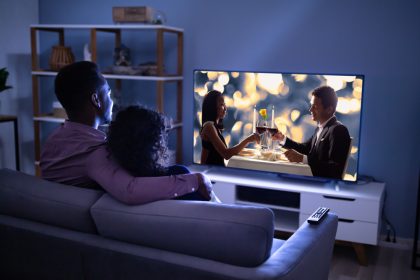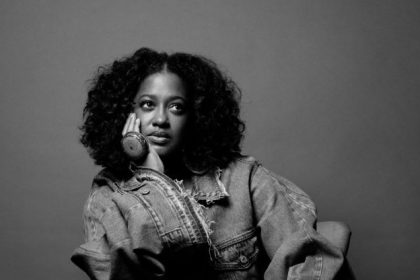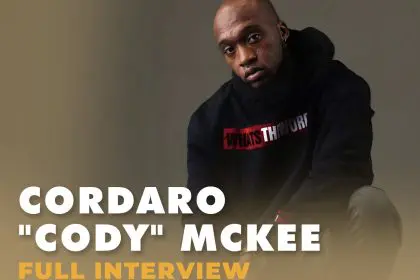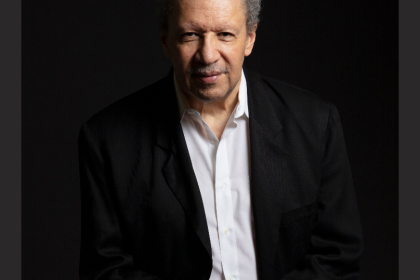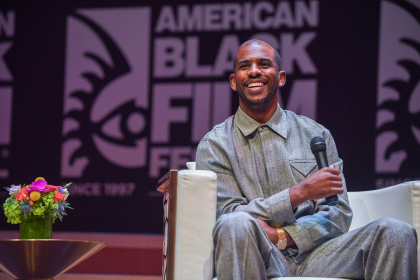
Described by the New York Times as “one of America’s more significant playwrights,” Carlyle Brown’s career in theater has been dedicated to provoking conversations about race in America, specifically examining the historical and current experiences of African Americans. From a career as a sailor captain to finding himself a home in theatrical arts, Brown is a multi-talented who has made an impact in the world of theater, winning multiple awards such as The Black Theater Network’s Winona Lee Fletcher Award and the Otto René Castillo Award for Political Theatre. He will be an honoree at the 37th annual William Inge Theater Festival.
Brown was born in New York, grew up in Charleston, North Carolina, and is the artistic director of Carlyle Brown & Company, which is based in Minneapolis. His company has produced many works, such as The Fula From America: An African Journey, Talking Masks, Are You Now Or Have You Ever Been …, Therapy and Resistance, and The Masks of Othello: A Theatrical Essay. Brown has also performed in numerous plays including The African Company Presents Richard III, The Little Tommy Parker Celebrated Colored Minstrel Show and The Negro of Peter the Great.
His most recent work, Acting Black, is returning to the Twin Cities to enlighten and provide all with the tools for having challenging conversations. Acting Black is a provocative one-man show that dives into the roots of American racism and the consequences it brings to all of us. This performance is part spoken word, part stand-up comedy, and an engaging experience for the audience. Acting Black will be performed at the Lowry LAB Theatre in Saint Paul May 18 through 25.
What is the story behind Acting Black?
There isn’t a story behind the play, it’s more like a lecture [about] racism in America. It’s a description of racism as a pathology that serves a social and political purpose. It instructs you on how the world affects the characters differently from a movie or novel. The whole idea is to create a collectivity and a live audience.
What do you hope viewers will take away from the play?
That is entirely up to them. We’re all different. It just depends on who is in the room. Certainly, I want them to have more willingness to recognize the truth of the reality of White supremacy, I want them to be less in denial.
Define your personal brand.
I don’t know. That is for other people to decide. Before I was a playwright I was a sailor captain [for] a 19th-century sailing vessel. It was something I had a knack for, I was pretty good at it. I was known for talking trash and showing off. Your brand is that — it’s what other people are saying.
You are an honoree at the 37th annual William Inge Theater Festival this year. How do you feel about that?
It’s quite an honor. They want to celebrate me and do a reading of one of my works. There will also be scenes from William Inge himself.
Do you think there are widely held misconceptions about what you do?
Yes, we are a mystery to people. They do movies on it all the time, about the tragic artist, it’s kind of a view that people want to have.
Who are your role models?
My grandmother, she’s a huge role model. She always told a good story. When you’re with her, you are always left with something. A recipe or something. She was an artist but her medium was life.
If you could change one thing about the world, what would it be?
I would want to change human behavior. We have to change everything.
What do you feel it takes to be iconic?
That’s a mystery. Being iconic is something that happens to you.
What is your favorite vacation destination, and why?
The Eastern Caribbean, Grenada. It’s beautiful, relaxed, very African.
For those considering entering this arena, what skill sets do you recommend they acquire?
*Jokingly,* a rich spouse. There isn’t a particular skill because there are all kinds of people [who] are interested in this art form. I think it’s a mystery. This is an occupation that fits the particularities of my nature. It keeps me doing it, keeps me happy. I enjoy it. I need it.
–brianna shareef

